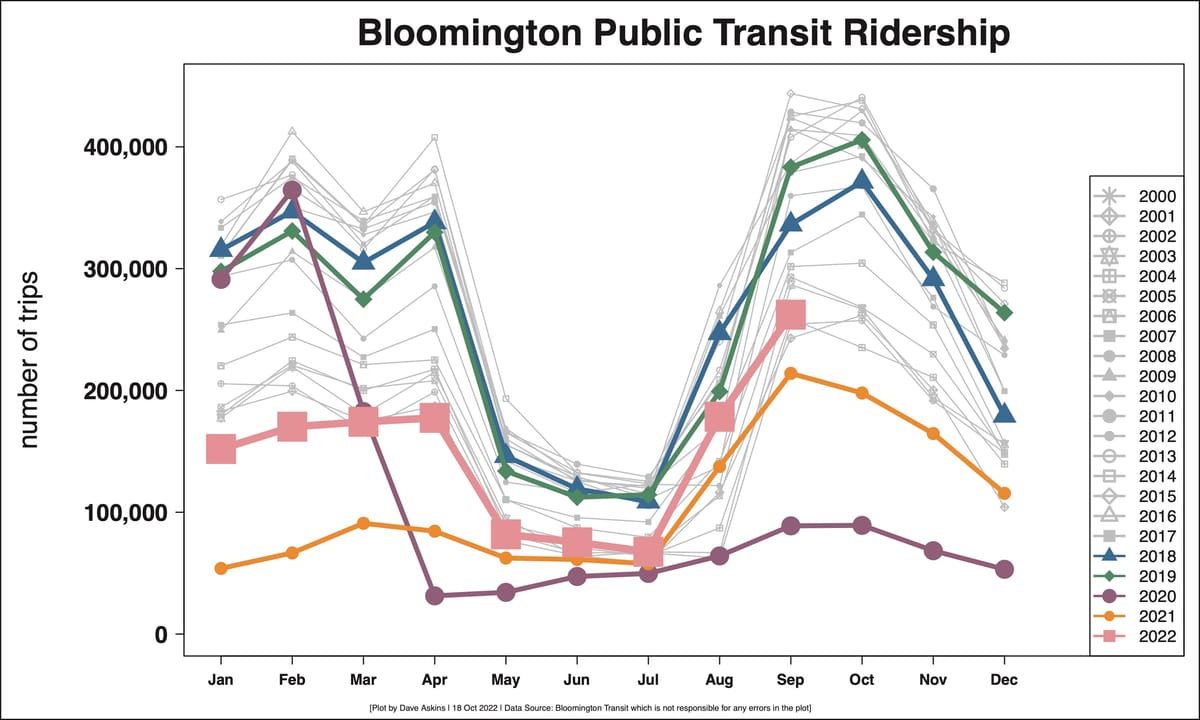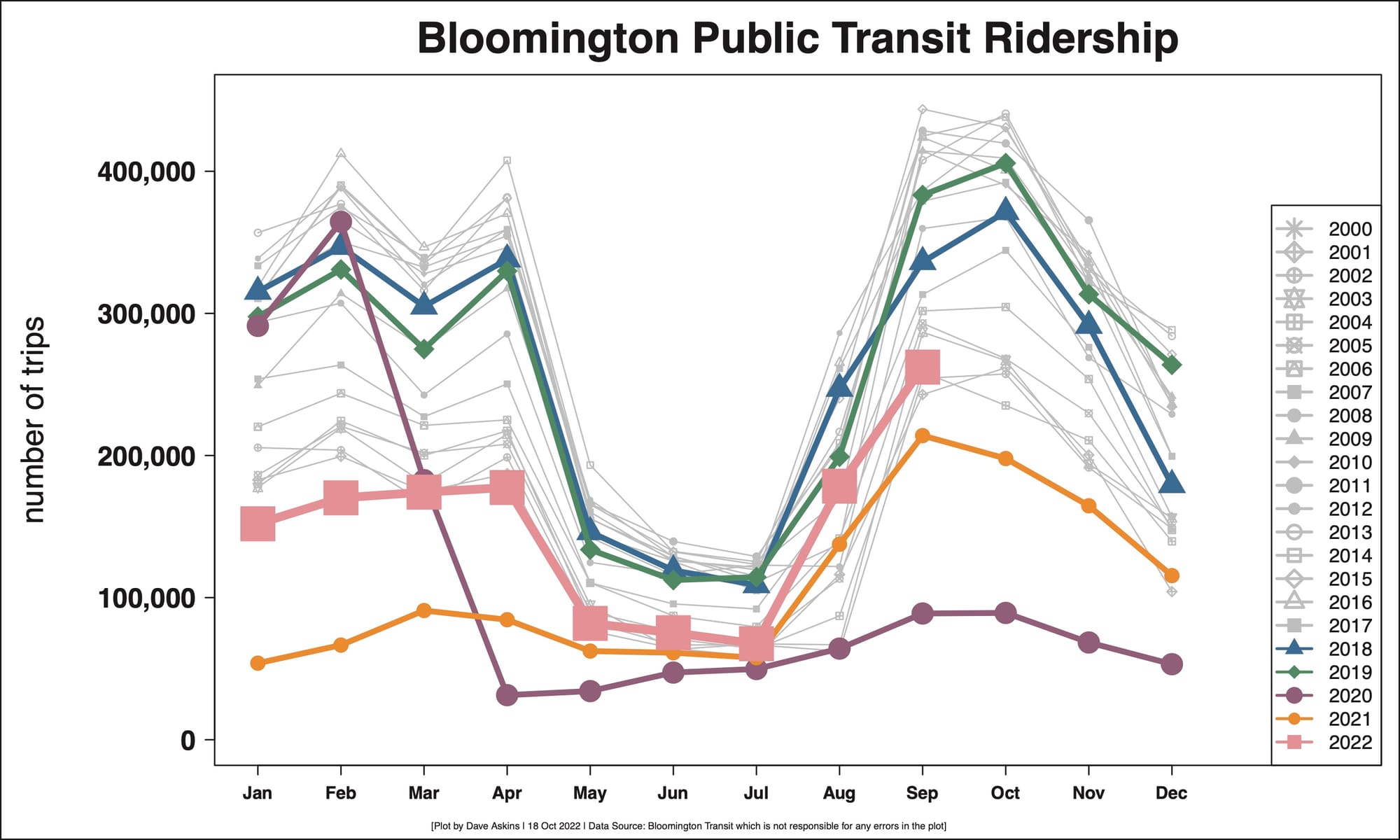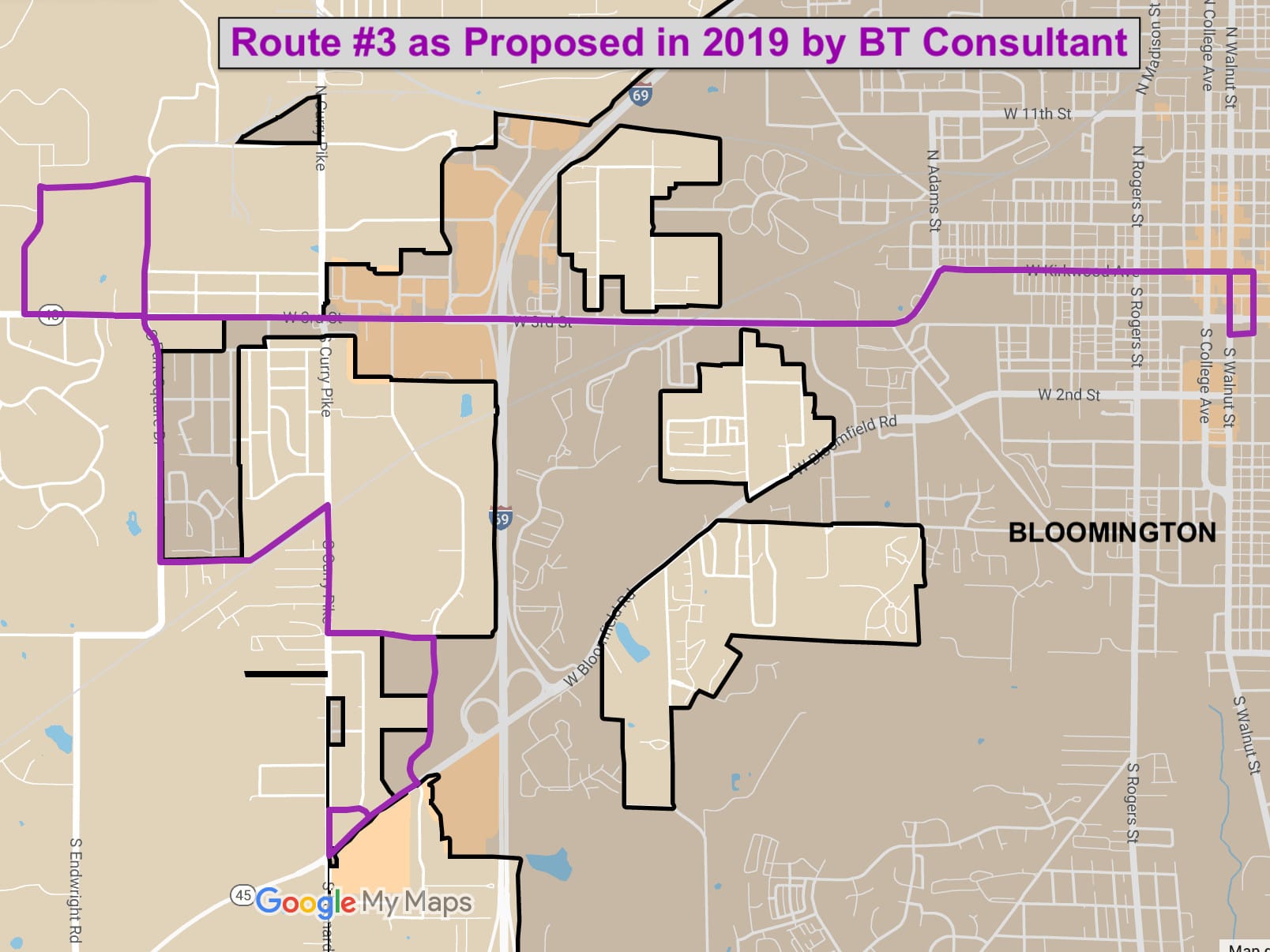Transit board wants attorney’s advice on legal requirements for service outside Bloomington



Bloomington Transit’s five-member board wants general manager John Connell to get legal advice on a specific question about the steps, if any, that need to be taken so that public bus service can be offered outside Bloomington’s city limits.
That was the outcome of a half hour’s worth of discussion at the BT board’s regular monthly meeting on Tuesday.
The board’s discussion came after Bloomington’s city council approved an early-September resolution expressing its support for extending BT’s service to Daniels Way, which is west of the city limits. Service to Daniels Way could serve Ivy Tech and Cook Medical, among other destinations.
At its September meeting, the BT board had already discussed the legal significance of the city council’s resolution. Their immediate concern was to determine if the resolution was an adequate legal basis for extending service outside the city limits. It wasn’t.
That was confirmed by BT’s outside counsel, which is The Rothberg Law Firm. In a memo to the BT board, Connell quoted the Rothberg attorney who worked on the question: “[T]he city council resolution is nothing more than a statement of support.”
At their September meeting, BT board members had been skeptical that the resolution approved by the city council was really a legal green light. The council’s resolution has wording that makes it contingent on the county government paying for the incremental cost of extending the service.
So the Rothberg opinion did not come as a surprise for BT board members. But it did remove any possible doubt.
Board members want Connell to have a clear opinion from Rothberg about what actions would clear the legal path to offering service outside the city, before putting additional time into developing the logistics for a new or extended route.
Board members appeared to agree that a clearer idea of the legal landscape should also precede substantive conversations with county government or other possible funding partners about proposed service.
Those funding partners might include Ivy Tech itself, or Cook Medical, based on Connell’s remarks at Tuesday’s board meeting. He pointed to the arrangement that BT has with Indiana University, under which the university pays BT about $1 million a year, so that IU affiliates can board BT buses just by flashing their university ID, without paying a fare. The same kind of program might work for Ivy Tech, Connell indicated.
But as far as partnering with businesses that have located outside the city limits, to avoid the higher property taxes, Connell cautioned that there could be a downside: “It provides them an opportunity to pick and pick and choose what city services they’re willing to pay for.”
If service is offered outside the city limits in the near future, it will likely not be through a simple extension of the existing Route 3, using just the two existing buses that serve it. A simple extension of Route 3 would not be feasible, Connell said, because adding the additional mileage would cause chronic lateness. It would not be possible to maintain the route with hourly service, he said.
A second alternative described by Connell would be to extend the route, but allow 90 minutes for a bus to make one run, and add a third bus. That would mean service every 30-minutes and would help alleviate existing lateness on Route 3, Connell said.
BT’s effort to extend service outside city limits comes in the context of work on its strategic plan. A public input session (with access in-person and on Zoom) will take place on Wednesday, Oct. 19 at 6 p.m. at BT Administration Building at 130 W Grimes Lane.




Comments ()